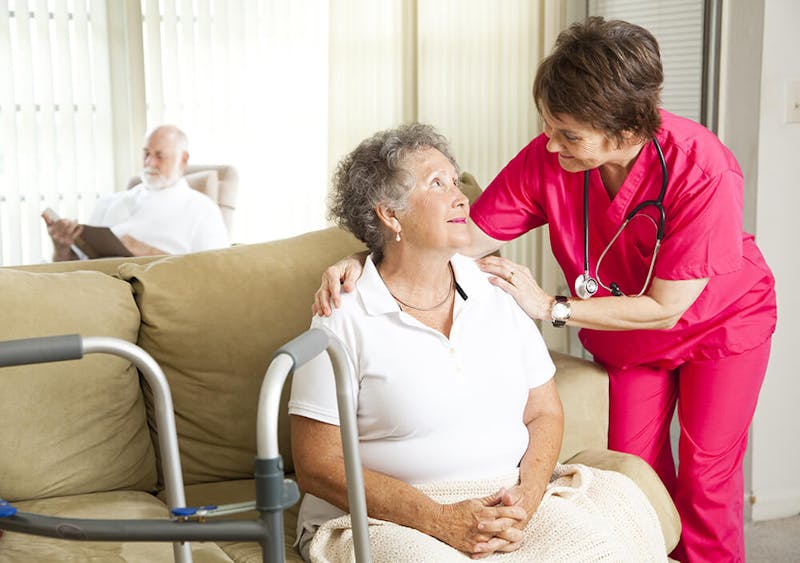
When we place the care of our elderly loved ones into the hands of a nursing home, we have to trust that the facility will care for them in ways we cannot. Unfortunately, many nursing home residents do not receive the care they need or are owed. As a result, many seniors end up with preventable injuries, or worse.
If you believe your loved one is being neglected, you can take legal action on their behalf. At McMath Wood P.A., our lawyers are prepared to guide you in the direction towards justice.
You may be uncertain as to whether or not your loved one is being cared for properly. Signs of neglect do not always manifest themselves the way signs of abuse do. This is why it’s important to understand what neglect it, how to recognize it, and what you can do if you’re loved one isn’t being cared for properly.
Defining Neglect
While nursing home abuse and neglect can go hand in hand, they have drastically different definitions. Abuse entails a nursing home resident is being harmed intentionally. If a nursing home resident is being neglected, it’s likely the facility or its employees are breaching their duty to care for your loved one properly.
When a nursing home fails to provide proper care for its residents, those individuals can suffer physically and psychologically. The severity of the consequences depends on the individual. Neglect can occur if a senior is repeatedly ignored or left alone, does not receive assistance with their personal hygiene matters, does not have access to basic needs, or is not provided with necessary medical treatment.
Recognizing the Signs of Neglect
It can be difficult to identify the signs of nursing home neglect. Depending on the type of neglect, there may not be any visible physical injuries. Family members may also be unaware of psychological changes if they live far away from where their loved one is staying. If you are worried about neglect, take into consideration the signs listed below.
Unexplained Injuries. While it’s not always common to see visible injuries on a senior who is suffering from neglect, it can happen. If a nursing home resident has mobility issues and doesn’t receive assistance walking downstairs, getting out of bed, or using the bathroom, they may fall. Falls can result in bruises, lacerations, head injuries, and broken bones.
Malnutrition/Dehydration. Nursing homes are required to ensure their residents receive the proper amounts of food and water on a daily basis. If a nursing home neglects that duty, the residents will suffer. The signs of malnutrition and dehydration can manifest in physical and emotional ways. For example, a resident may suffer from extended periods of weakness or depression.
Poor Personal Hygiene. If your loved one is suffering from poor personal hygiene, this is often a telling sign they are being neglected. Nursing home employees are expected to aid with basic personal hygiene. Residents may need help getting dressed, brushing their teeth or hair, bathing, or using the restroom. When a resident is neglected, they may not be able to do these things on their own.
Unsanitary Conditions. In addition to providing residents with personal hygiene assistance, they are also required to keep their facility clean and safe. Residents risk contracting illnesses if the conditions are not kept sanitary.
Psychological Changes. Neglect can cause a number of emotional issues in nursing home residents. They may become depressed, withdrawn, or afraid of their caregivers. They may also be reluctant to speak with you about what they’re being subjected to. These emotional changes can impact a person’s overall health and wellbeing.
Taking Steps to Protect Your Loved One
It’s important to know what to do if you suspect your loved one is being neglected at their facility. Nursing homes are required by state and federal laws to care for your loved ones medically, physically, emotionally, and socially. If they breach their duty, they should be held responsible.
If you believe your loved one is being neglected, you can file a complaint with the Arkansas Department of Human Services’ Office of Long-Term Care. They will look into the matter and proceed accordingly depending on the findings of their investigation. If you believe your loved one is in immediate danger, you have the right to contact local law enforcement and have them rehoused to a safer facility. You can also contact Adult Protective Services.
If you’re ready to take legal action on behalf of your elderly loved one, our attorneys in Little Rock will help you collect the evidence necessary to build the strongest case possible. We’ll do what it takes to get compensation for your loved one, so they can work towards recovery. Contact us today for more information and a free consultation.

